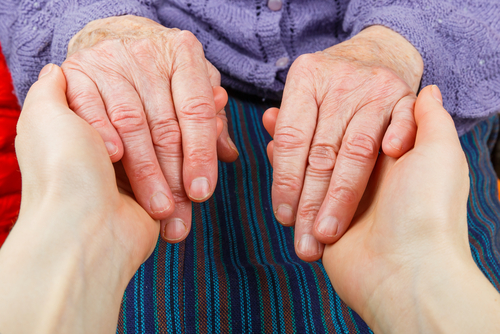[ad_1]
5
Learn how to Speak About Drug or Alcohol Abuse as a Stay-in Caregiver and What to Look Out For
If you’re a live-in caregiver, your No. 1 precedence ought to be the well being, security and well-being of the particular person you’re caring for. Given the rising tide of prescription drug and alcohol abuse amongst as we speak’s seniors, that entails figuring out the indicators of drug and alcohol abuse—and with the ability to discuss a possible drawback with medication or alcohol when you may have suspicions. Addressing Drug or Alcohol Abuse as a Stay-In Caregiver
Substance Abuse and the Aged
Substance abuse by aged People—notably of alcohol and pharmaceuticals—is “an invisible epidemic,” a report by the Substance Abuse and Mental Health Services Administration warned in 1998.
By a recent estimate, greater than half of older adults (ages 65 and older) drink alcohol, and of those seniors, roughly one in 5 drinks to extra at unsafe ranges, in keeping with a CBS News report in 2015.
Prescription drug abuse, too, is trigger for concern, as evidenced by the truth that a overwhelming majority (87 %) of older People take not less than one prescription drug frequently, in keeping with a 2005 report by the American Association of Retired Persons (AARP). Amongst aged individuals who search medical consideration, the speed of prescription drug abuse is reportedly between 13 and 15 %. (The precise price of drug abuse is probably going a lot larger, provided that many situations of abuse go unreported.)
Indicators of Alcoholism and Drug Abuse – What to Search for
The indicators of alcoholism and/or drug abuse in older People might be more durable to overlook—therefore the time period “invisible epidemic.” For instance, a dependable signal of a substance use dysfunction (SUD) is having issues at work, however many older People are retired and now not working. They might due to this fact not manifest this extra apparent warning signal of a drug or alcohol drawback. Generally, too, the signs of a SUD can masquerade as merely the pure signs of growing older.
Stay-in caregivers, by advantage of dwelling in shut proximity to their aged purchasers, are uniquely positioned to catch the indicators of a possible SUD, nonetheless. On this sense, they’re first responders on the frontlines of catching a substance abuse drawback earlier than it’s too late. Under are indicators to search for if medication or alcohol could also be a supply of concern: Addressing Drug or Alcohol Abuse as a Stay-In Caregiver
- Consuming alone and infrequently
- Ritualized consuming (for instance, needing a drink at a sure hour of the day and changing into annoyed, irritable or belligerent when that’s not doable)
- Consuming regardless of label warnings on pharmaceuticals or the misuse of pharmaceuticals
- Slurred speech, the odor of liquor on one’s breath and/or indicators of intoxication
- Modifications in temper (seeming down, anxious or depressed or extra vulnerable to sudden outbursts)
- Reminiscence issues
- Unexplained burns, bruises, falls or different accidents
- Different worsening well being issues—or, continual well being complaints that appear to have no bodily trigger
- A lack of curiosity in hobbies that when introduced pleasure
- A historical past of alcohol abuse or a latest life-changing occasion such because the lack of a partner or retirement (coupled with a number of of the above indicators)
Ideas for Speaking About Drug or Alcohol Abuse
If you happen to suspect drug or alcohol abuse is at play primarily based on the above indicators, speaking about your issues stands out as the subsequent step (relying on the circumstances). If you broach your issues concerning drug or alcohol abuse, the next pointers might assist:
- Speak with the particular person when they aren’t consuming or below the affect. If the particular person is intoxicated or drunk or one other drug, she or he will probably be much less prone to hear you or extra vulnerable to defensiveness.
- Emphasize your love and concern. Somebody with an dependancy drawback is extra prone to hearken to your issues when on the receiving finish of a loving try to attach. This isn’t the time for barking orders or flushing capsules or liquor down the bathroom or sink dispenser. As a substitute, keep constructive, by noting the qualities you admire within the particular person, the reminiscences you’re grateful for, and the constructive core values she or he has modeled for you (such because the love of household or the significance of religion). These core values can be a option to reinforce the constructive motivation(s) somebody with a possible SUD might need for getting therapy. For instance, if you already know household is vital to her or him, spending high quality time with grandchildren could also be incentive to enter drug or alcohol therapy.
- Be light however direct about your issues. In a large number of situations, simply because a shopper is aged doesn’t imply she or he isn’t capable of perceive you, or must be babied or sheltered from the reality. Matter-of-factly and as non-judgmentally and non-confrontationally as doable, point out the behaviors you’re noticing which can be inflicting you concern and why.
- Keep away from the phrases “drug addict” and “alcoholic.” As a result of these phrases might be stigmatizing, they’ll perpetuate folks’s sense of disgrace and/or denial, thereby pushing them additional away from receiving assist. Addressing Drug or Alcohol Abuse as a Stay-In Caregiver
By Linda Williams
Linda Williams is the Government Director of Beach House Center for Recovery. She can be a seasoned clinician with specialization in dependancy and trauma.
For additinal data please go to The Nationwide Council on Seniors Drug & Alcohol Rehab: https://rehabnet.com/
Addressing Drug or Alcohol Abuse as a Stay-In Caregiver
Addressing Drug or Alcohol Abuse as a Stay-In Caregiver Addressing Drug or Alcohol Abuse as a Stay-In Caregiver Addressing Drug or Alcohol Abuse as a Stay-In Caregiver Addressing Drug or Alcohol Abuse as a Stay-In Caregiver
[ad_2]
Source link



